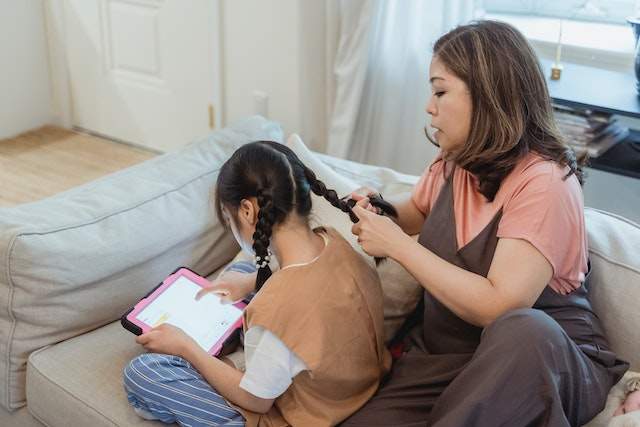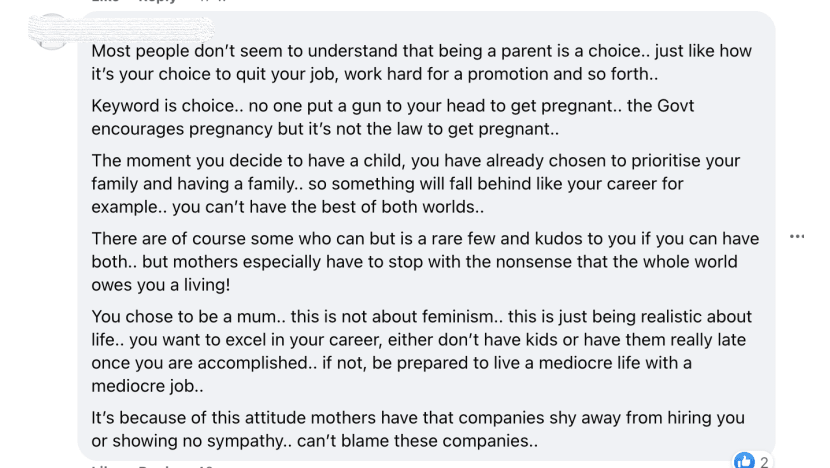
This op-ed was originally published in Channel NewsAsia on 14 May 2023.
Long before anti-discrimination workplace legislation was mooted in Singapore, legal benefits and protections were already in place for working mothers: For example, the right to at least three months of maternity leave.
However, lest you take these protections as a sign of widespread progressive attitudes, consider this: Maternity discrimination is by far the most common form of discrimination seen by AWARE’s Workplace Harassment and Discrimination Advisory (WHDA).
Since its inception in 2019, WHDA has received 218 cases of maternity discrimination – from untoward job interview questions to wrongful dismissals, denial of bonuses and outright harassment. In 2022, such cases made up 85 per cent of the service’s entire discrimination caseload.




 Screengrab of an online comment. (Source: AWARE)
Screengrab of an online comment. (Source: AWARE) Screengrab of an online comment. (Source: AWARE)
Screengrab of an online comment. (Source: AWARE) Screengrab of an online comment. (Source: AWARE)
Screengrab of an online comment. (Source: AWARE) Screengrab of an online comment. (Source: AWARE)
Screengrab of an online comment. (Source: AWARE)